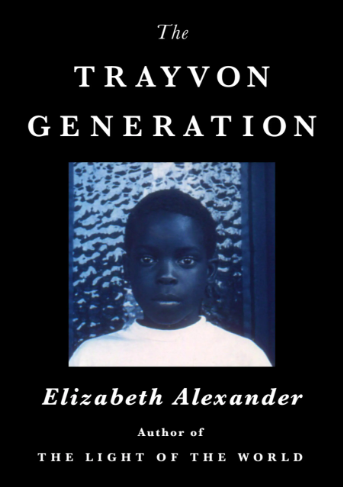On October 13, the Fieldston community hosted noted poet, activist and academic, Dr. Elizabeth Alexander, for a timely discussion of race, art, generational responsibilities and motherhood. Alexander’s career encompasses varied experiences in academia, activism and writing. While her recent focus has been on her newly published collection of essays on race, art, freedom and America, “The Trayvon Generation,” she is also highly respected for the numerous professorships that span more than fifteen years at leading institutions including Columbia University, Smith College and Yale University. In 2018, Alexander became president of the long-established New York based Andrew W. Mellon Foundation, which has geared its mission towards nourishing communities by funding the combined fields of art and culture, and improving education in the humanities.
Fortunately for the Fieldston Upper School, we were able to hear Alexander discuss the “The Trayvon Generation,” which was the all school English department read. Alexander gave a compelling talk with Dr. Alwin Jones, the chair of the English department, serving as interlocutor, about her book and the areas in her career that enriched her the most.
The essay reflected on the brutalities that have affected the lives of Black people in America through the lens of a mother of two Black sons, and how protecting a child is more complex when confronting issues of racism. This is the extra layer that she believes society seems to neglect. The title “The Trayvon Generation” is in reference to the generation of students currently living in a world with ongoing racism, noting the murder of Trayvon Martin, a 17 year old African American in Sanford, FL who was killed by a neighborhood watchman while holding a bag of skittles and Arizona iced tea. How does this generation reflect on the historical and social issue of racism and take responsibility simultaneously, Alexander asked?
It was apparent that the intersection of art and activism guided the way in which the author wrote her novel to highlight the main ideas. Genevieve Paul (V) said that “she did a really good job of speaking to multiple audiences while centering the voices of Black people. The thing which struck me most in her book was the theme of remembrance and monuments; how something which we might not consider a “traditional” monument, can still carry memory and meaning for a group of people (ex. a painting or a dance piece). In her assembly presentation, I thought that she did an amazing job of talking about the nuances of art and how art can mean different things to different people.” The book intertwined poems and works of art to communicate her fears about how racism affects this generation. Alexander also explained the significance of exploring multiple ways to communicate ideas and finding a voice to advocate and drive activism. Writing and fine arts were the outlets she used to express her beliefs, emotions and outlook on the effects of America’s history to Black people through a creative perspective.
Gina Apostol, an Upper School English teacher, was the first to read the novel and the English department agreed that it lent itself as a multi genre book which included art, poetry, history, anecdotes and memories. The novel was appropriate for the material that wanted to be covered by this school year as the theories were relevant for students to understand the world and the shock of delayed comprehension.
During his many years of teaching at Fieldston, Jones taught the sons of Alexander. Jones has read “Trayvon” several times through the lens of a parent of young Black children and teacher of young people of color at Fieldston. When asked to comment on the book Jones said, “It reaffirmed the role of literature, particularly the role of African-American literature, and the traditions available to us, and what roles that can help us as we try to navigate the complexity and hardships of the world that we face. I felt that it was a gift to me as a parent and as a teacher.”
Alexander’s themes dovetailed with the themes of Cathy Park Hong’s “Minor Feelings,” which was last year’s all school department read. “The Trayvon Generation” refers to writers such as Adrienne Su and Clint Smith, acts as a kind of anthology. The concept of borrowing is a significant part of African-American tradition and the idea of quilting that novelist, Alice Walker, describes as a way of using old pieces to create something new and of everyday use, is a technique students and the Fieldston community can use to identify this novel. Jones related his background in literature to the history of literature and the boundaries activists exceed these days as he stated, “My first introduction to literature was activism. I love that writers are doing things that run a file of society’s norms… they are pushing boundaries of both our imagination and society… [like] the people who used literature to push the dimensions of what it meant to be a women in society when they weren’t allowed to have those conversations in public spaces… the African- Americans creating a genre that was meant to write them to freedom called a “slave narrative,” [and] Anne Franks’ diary attempting to survive the Holocaust [and how her] words survived that helped us to understand that past.” The tradition of artists and writers, such as Bob Dylan and Nina Simone using their music as freedom of expression plays a significant role in activism today.
Alexander emphasized the central role of storytelling as a keeper of history and a catalyst for activism, especially for Black people in America. Her novel encourages all voices to use their talents, whether that is in writing, music, etc., to initiate activism, and reminds us how creating powerful archives of writing is imperative to understanding our past, present and future.






